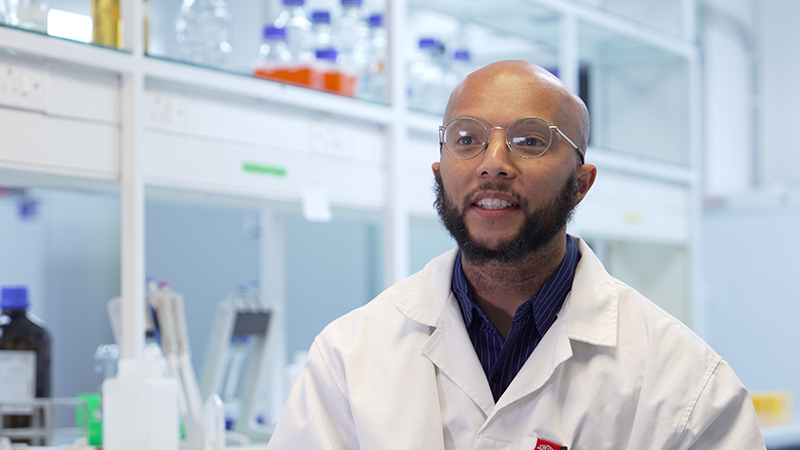The battle against HIV in sub-Saharan Africa has always been as much about systems and science as about the virus itself. Antiretroviral therapy has turned what was once a death sentence into a manageable condition.
Yet, as Dr Monray Williams of the North-West University (NWU) cautions, “millions of people still face barriers to prevention and treatment. Poverty, limited healthcare infrastructure, and social stigma continue to shape who gets care and who does not.”
The paradox is stark: Africa remains the global epicentre of HIV, yet it is also becoming a nerve centre of virological innovation. For decades, most HIV science has been dominated by research from the global North, focusing on the viral subtype B common in Europe and North America.
In southern Africa, however, subtype C – the continent’s dominant strain – tells a different story. “Even with significant investment,” says Dr Williams, “our outcomes remain uneven because proper management and sustainable implementation strategies have not always followed the funding.”
Dr Williams, a virologist and molecular neurobiologist, leads a research group at the NWU that seeks to untangle this imbalance both scientifically and structurally. His work examines the pathogenesis and neuropathogenesis of viral diseases, combining in silico analysis, in vitro experiments, and clinical studies.
Recently awarded a prestigious Fulbright Fellowship to continue his research in the United States, he represents a new generation of African scientists who are redefining the global research landscape from within.
“Our investigations explore how HIV-1 viral proteins, particularly in subtype C infections, affect inflammation, metabolism, and cardiovascular risk in both children and adults living with HIV,” he explains.
This focus on sequence variations in viral proteins such as Tat, Vpr, and Vif is more than academic curiosity. It goes to the heart of understanding why neurological complications persist even when viral loads are suppressed.
“We analyse cerebrospinal fluid and blood samples to identify biomarkers that can predict or monitor neurological complications,” says Dr Williams. “By identifying these molecular signatures, our goal is to support earlier diagnosis, improve treatment monitoring, and inform the development of therapies better suited to African populations.”
The intersection between virology and neurobiology is fertile ground. HIV does not merely weaken the immune system, it can also invade the brain, leading to cognitive impairment and neuroinflammation.
“Virology and molecular neurobiology are distinct fields of study,” Dr Williams explains, “but they intersect when studying how viruses invade neurons, alter neuronal function, and cause neurological damage.” Understanding that overlap, he argues, is key to treating a generation of patients living longer with HIV but still battling its hidden neurological consequences.
Progress, however, is not only about lab results, it is also about leadership and local innovation. Across the continent, African-led initiatives are reshaping HIV surveillance and care. Community health workers deliver treatment where hospitals cannot; mobile health platforms track patients and send medication reminders; and traditional healers, often trusted where doctors are not, play a vital role in reducing stigma and encouraging testing.
“When African-led initiatives are supported by strong governance and thoughtful investment strategies,” says Dr Williams, “they can reach millions of people and transform lives.”
That combination of local trust and scientific rigour is paying off. Recent clinical trials of lenacapavir – a twice-yearly injectable drug – reported zero new infections among women in South Africa and Uganda. Endorsed by the World Health Organization, it could revolutionise prevention by overcoming the adherence challenges that have plagued daily medication.
Meanwhile, African scientists such as Prof Thumbi Ndung’u, under networks such as the Sub-Saharan African Network for TB/HIV Research Excellence, are driving cure research and integrated care models that connect HIV treatment with tuberculosis, diabetes, and mental health care.
For Dr Williams, these advances signal a continental shift: “Africa is not just a site for research, it is a source of it.” But he is frank about the challenges. “The real progress against HIV in Africa will not come from science alone but from how we manage and invest in that science,” he says. Billions have been poured into programmes, yet results vary widely. “This is often not because of a lack of knowledge or innovation, but because of weak management structures, fragmented implementation, and short-term planning.”
His solution is unapologetically practical: sustained investment in research infrastructure, education, and scientific leadership paired with transparent governance and accountability. “Africa already has an extraordinary pool of researchers who are world leaders in virology, immunology, and neuroHIV science,” he says. “What we need now is the confidence and coordination to turn this knowledge into tangible impact.”
That call for confidence is more than rhetoric. Local research on subtype C is already improving diagnostic accuracy and treatment design. “When we generate our own data, build our own technology, and train our own scientists, we produce tools that reflect the real biological diversity and health realities of our continent,” says Dr Williams. “This is how we move from dependency to leadership in the global HIV response.”
As Africa’s laboratories and clinics grow more sophisticated, so too does its scientific voice. The continent that once bore the heaviest burden of the epidemic is now shaping the science to end it. “If we can align our resources, strengthen our health systems, and invest in people,” Dr Williams concludes, “then the vision of ending the HIV epidemic in Africa is within reach.”
In his quiet, empirical way, he represents what the future of global health could look like: rigorous, rooted, and unashamedly African.

Dr Monray Williams
